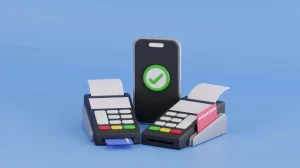Table of Contents
ToggleSpeed creates winners in fintech. The first payment platform that reaches merchants often becomes the default choice because trust forms early.
Once a payment service provider (PSP) gains users, every new client adds momentum. The slowest competitor rarely catches up, even with better technology.
Today, founders gain an advantage through platforms that remove the need to build infrastructure. A ready payment gateway can be branded and taken to market in about a week through eComCharge, which provides the core system while the founder controls the business. The idea of spending years on development loses sense when revenue can start almost immediately.
What Makes the Fast Lane to Fintech the New Standard for Payment Start-Ups?
The Old Fintech Road: Years Before Revenue
Fintech once demanded large budgets and long roadmaps. The traditional route required custom development and heavy technical work. A payment platform needed direct links to banks, card schemes and alternative payment methods.
Every connection meant certification, tests and ongoing maintenance. One error caused delays. A new regulation stalled progress. Even after launch, costs kept rising. Updates from banks or card schemes forced code changes.
Each new payment method required extra integration. Work never stopped, and revenue arrived much later. Many projects failed before reaching a client because development drained both cash and momentum.
A New Route to Launching a Payment Platform

Modern founders refuse to walk the slow path. They choose platforms that already include the core payment engine. Instead of building infrastructure, they brand an existing gateway and begin to onboard clients. The system works from day one. The founder focuses on revenue, client relationships and pricing strategy.
This shift happened because white-label platforms now offer full readiness:
- Infrastructure already connects to banks and acquirers.
- Compliance exists from the outset through PCI DSS certification.
- Merchant onboarding portals already operate.
- Dashboard, reporting and settlement logic already stand ready.
Founders no longer design code to begin a business. They skip the build phase and enter the revenue phase faster. The platform already functions, so the start-up operates as a payment provider from the start.
What “Record Time” Looks Like in Fintech Today?
Speed no longer creates trade-offs; it gives an advantage. Years of engineering once separated an idea from a payment business. Now the gap between business idea and launch lasts about a week because founders use a ready solution instead of assembling one from scratch.
The 7-Day Blueprint
The one-week launch cycle that eComCharge supports shows a clear path from concept to revenue:
- Day 1–2: Brand and platform setup: Logo, colour scheme and domain go live. A merchant dashboard appears with the start-up’s visual identity.
- Day 3–4: Business logic: Pricing, fees and transaction limits are defined. The platform already supports multiple currencies and payment methods, so the founder shapes commercial terms instead of writing code.
- Day 5–7: Merchant activation: Clients are onboarded. Once the first payment goes through, revenue starts. The start-up launches without months of development.
The process turns a complex engineering build into a fast business launch with real revenue timelines.
How a Working Platform Creates Confidence?

Modern founders understand that growth comes from clients, not code. They spend time on outreach, relationships and market positioning rather than technical roadblocks. They approach merchants with a live dashboard, not a prototype. That shift inspires confidence. A merchant sees a working product and agrees to process through the platform.
Years of technical delays used to destroy momentum. One week of setup creates an entirely different psychology. Instead of a long build period without revenue, the founder steps into sales mode at once.
3 Types of Fast-Launch Fintechs
A white-label model suits different business types. It removes the burden of infrastructure and gives full ownership of the payment business.
- Regional PSP start-ups that target markets where Stripe or large PSPs show little focus
- SaaS platforms that add payments to gain a new revenue stream
- Entrepreneurs who identify a niche, such as travel payments or marketplace settlements.
Each type gains the same outcome: a branded payment service with the ability to charge fees. Founders take control over merchant relationships and pricing. The platform shows their logo, name and terms. The start-up becomes a payment provider rather than a user of someone else’s software.
The Fast Lane Rewards Builders Who Launch
Fintech used to honour perfection. Now it honours pace. The founder who launches fastest gains merchant trust first. Clients see results, not code. Once the platform processes real transactions, the business holds value, and momentum grows.
Speed wins deals. A founder who waits for code misses opportunities. A founder who launches in about a week attracts early merchants and generates proof of demand. That momentum attracts new clients and increases visibility.
The change in fintech no longer comes from technical depth. It comes from the ability to reach the market and own relationships. Modern payment platforms do not require years of development before revenue appears. They require a founder who takes action.




